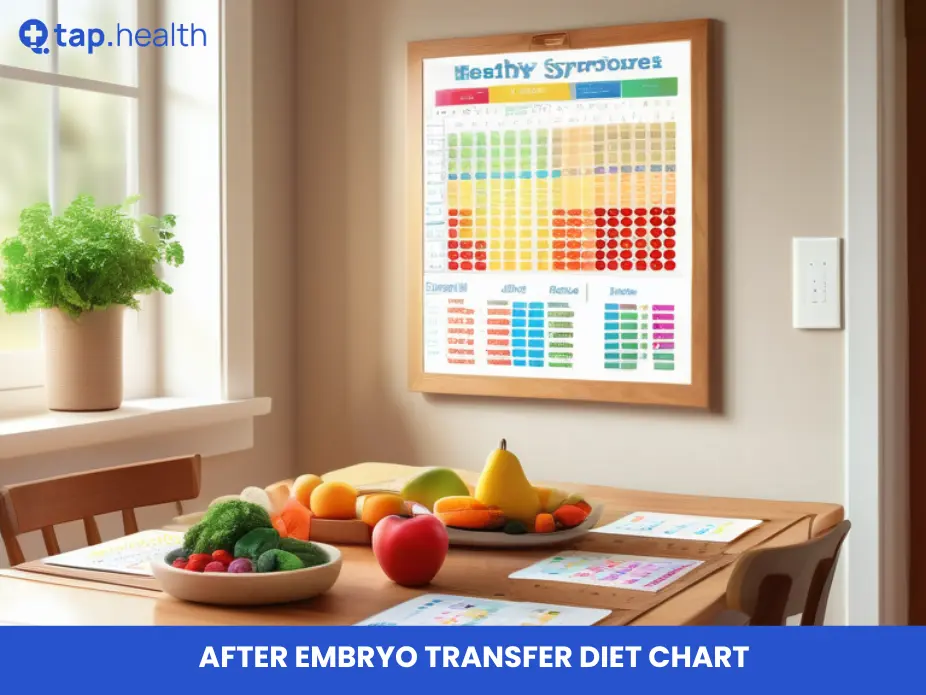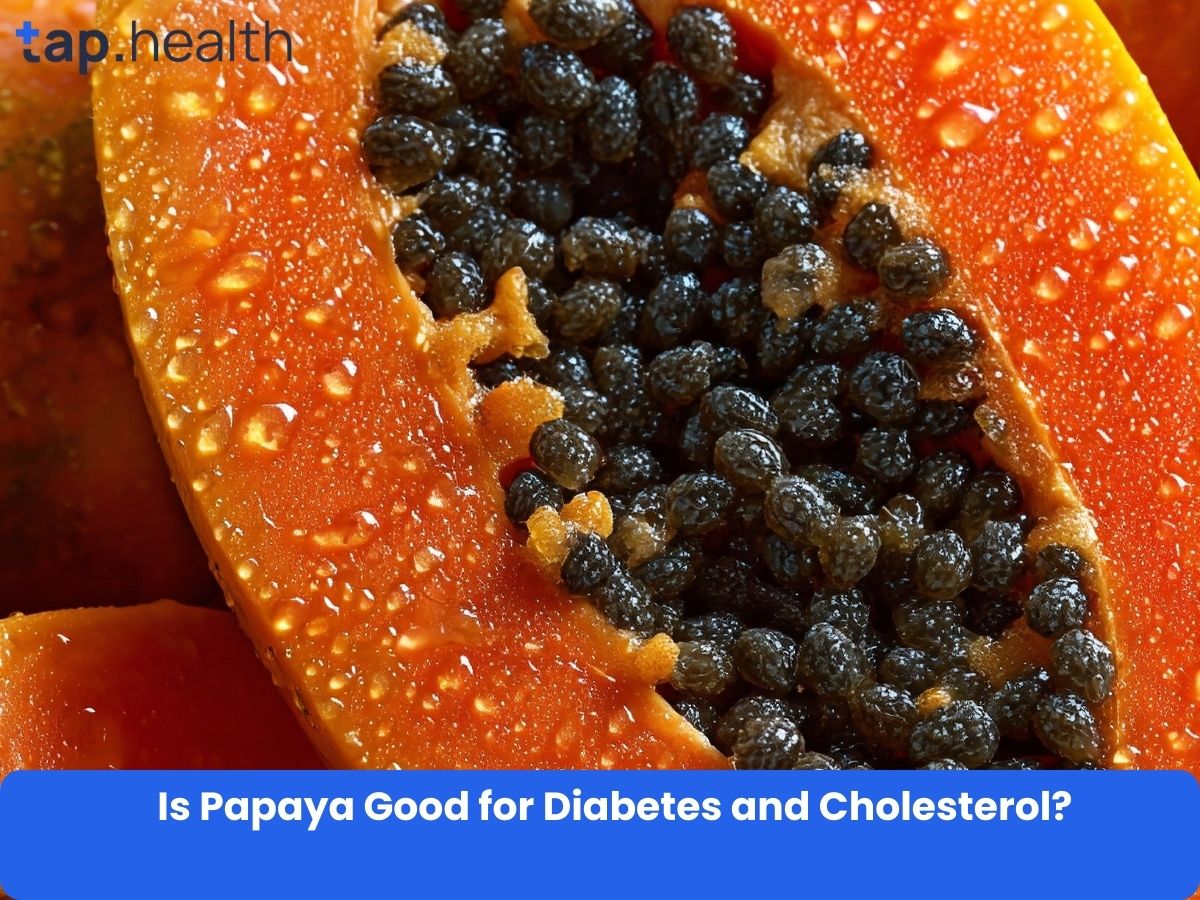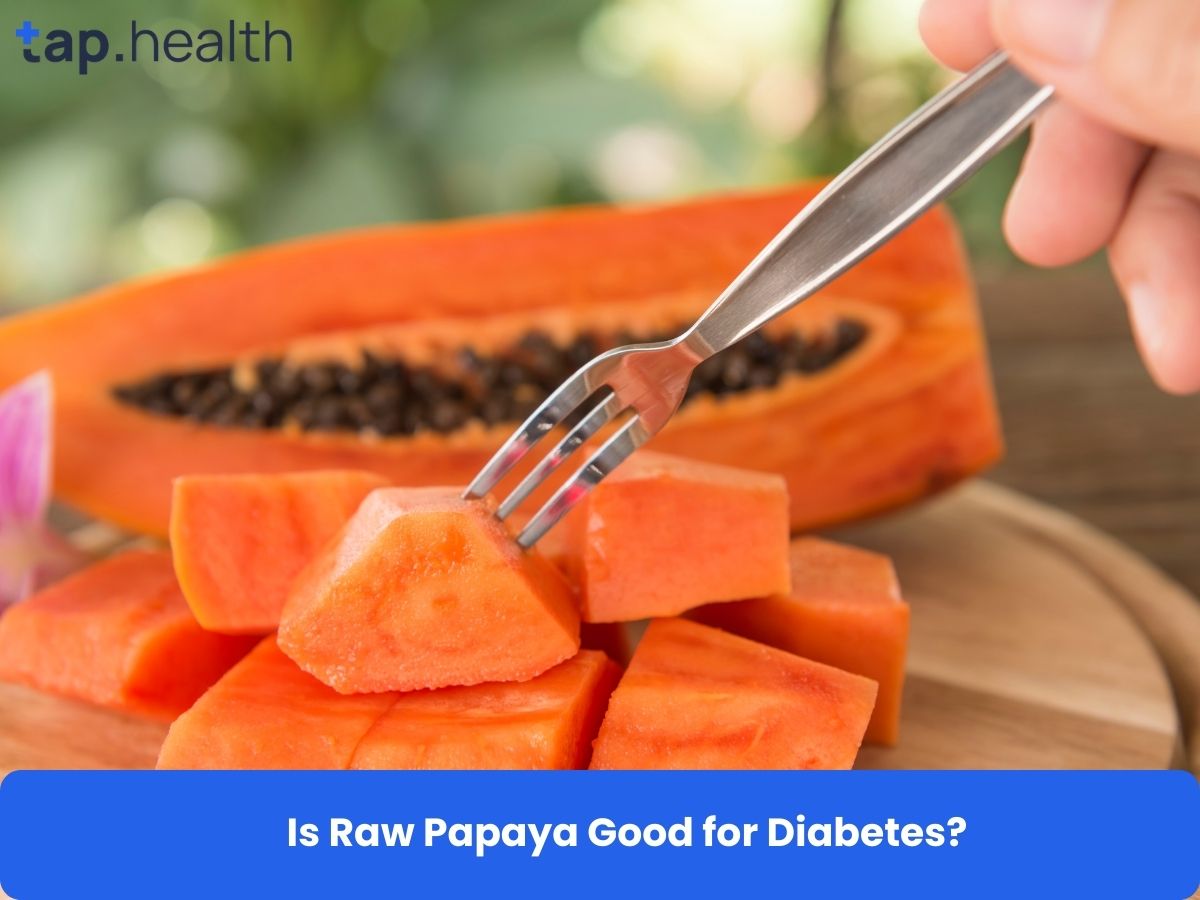Embarking on an IVF journey is a significant step, and the period following an embryo transfer is crucial for implantation and early pregnancy. A well-planned diet can enhance your chances of success by providing essential nutrients, balancing hormones, and supporting overall health. This blog outlines a concise after-embryo transfer diet chart, highlighting foods to include, avoid, and a sample meal plan to guide you through this critical phase.
Why Is Diet Important After Embryo Transfer?
The days after an embryo transfer are pivotal as the embryo implants into the uterine lining. A nutrient-rich diet can:
- Support Implantation: Provide nutrients to nourish the uterine lining.
- Balance Hormones: Stabilize hormone levels for a healthy pregnancy.
- Reduce Stress: Promote overall well-being to minimize stress.
- Enhance Embryo Development: Supply energy and building blocks for growth.
By focusing on specific nutrients and avoiding harmful foods, you can create an optimal environment for a successful pregnancy.
Key Nutrients for Post-Embryo Transfer Diet
To support implantation and early pregnancy, prioritize these essential nutrients:
1. Protein
- Why It Matters: Supports cell growth and repair, crucial for embryo development.
- Sources: Lean meats (chicken, turkey), fish, eggs, tofu, legumes, quinoa.
- Daily Goal: 60-70 grams.
2. Folic Acid
- Why It Matters: Aids neural tube development and DNA synthesis.
- Sources: Spinach, kale, citrus fruits, beans, fortified cereals.
- Daily Goal: 400-600 micrograms.
3. Iron
- Why It Matters: Boosts hemoglobin production for oxygen delivery to the embryo.
- Sources: Red meat, poultry, lentils, spinach, fortified cereals.
- Daily Goal: 27 milligrams.
4. Omega-3 Fatty Acids
- Why It Matters: Supports brain and eye development, reduces inflammation.
- Sources: Salmon, flaxseeds, chia seeds, walnuts.
- Daily Goal: 200-300 milligrams.
5. Calcium
- Why It Matters: Essential for bone and teeth development, supports nervous system.
- Sources: Milk, yogurt, cheese, leafy greens, fortified plant-based milk.
- Daily Goal: 1,000-1,200 milligrams.
6. Vitamin D
- Why It Matters: Enhances calcium absorption, supports immune health.
- Sources: Fatty fish, egg yolks, fortified dairy, sunlight exposure.
- Daily Goal: 600-800 IU.
7. Zinc
- Why It Matters: Promotes cell division and hormone production.
- Sources: Meat, shellfish, seeds, nuts, whole grains.
- Daily Goal: 11 milligrams.
Best Foods to Include After Embryo Transfer
Incorporate these nutrient-dense foods to support implantation and pregnancy:
1. Leafy Greens
- Benefits: Rich in folic acid, iron, and antioxidants.
- How to Use: Add to salads, smoothies, or stir-fries.
2. Berries
- Benefits: High in antioxidants, vitamins, and fiber to reduce inflammation.
- How to Use: Snack on them, add to yogurt or oatmeal.
3. Nuts and Seeds
- Benefits: Provide healthy fats, protein, and zinc for hormone balance.
- How to Use: Sprinkle on salads or blend into smoothies.
4. Whole Grains
- Benefits: Offer fiber and sustained energy from quinoa, oats, or brown rice.
- How to Use: Use as meal bases or breakfast options.
5. Lean Proteins
- Benefits: Supply amino acids for embryo growth.
- How to Use: Include in main dishes, salads, or sandwiches.
6. Legumes
- Benefits: Packed with protein, iron, and folic acid.
- How to Use: Add to soups, stews, or salads.
7. Dairy Products
- Benefits: Provide calcium, vitamin D, and protein.
- How to Use: Include low-fat milk, yogurt, or cheese daily.
Foods to Avoid After Embryo Transfer
Certain foods can hinder implantation or pose risks to early pregnancy. Avoid:
1. Caffeine
- Why Avoid: May increase miscarriage risk and reduce nutrient absorption.
- Limit: Less than 200 milligrams daily (one 8-ounce coffee).
2. Alcohol
- Why Avoid: Interferes with fetal development and raises miscarriage risk.
- Action: Eliminate completely.
3. Processed Foods
- Why Avoid: High in unhealthy fats, sugar, and sodium, disrupting hormones.
- Action: Choose whole, unprocessed foods.
4. High-Mercury Fish
- Why Avoid: Mercury harms the embryo’s nervous system.
- Action: Opt for low-mercury fish like salmon or sardines.
5. Soft Cheeses and Deli Meats
- Why Avoid: Risk of Listeria, which can cause miscarriage.
- Action: Choose pasteurized cheeses; heat deli meats until steaming.
6. Raw or Undercooked Eggs and Meat
- Why Avoid: Risk of Salmonella or E. coli infections.
- Action: Cook thoroughly before eating.
Sample After Embryo Transfer Diet Chart
Here’s a 3-day meal plan to guide your nutrition post-embryo transfer:
Day 1
- Breakfast: Oatmeal with blueberries, chia seeds, and almond milk.
- Snack: Greek yogurt with walnuts.
- Lunch: Grilled chicken quinoa salad with spinach and avocado.
- Snack: Apple slices with almond butter.
- Dinner: Baked salmon, roasted sweet potatoes, steamed broccoli.
- Evening Snack: Warm milk with cinnamon.
Day 2
- Breakfast: Spinach-banana smoothie with flaxseeds and almond milk.
- Snack: Whole-grain toast with peanut butter.
- Lunch: Lentil soup with mixed greens salad.
- Snack: Carrot sticks with hummus.
- Dinner: Grilled turkey breast, quinoa, sautéed green beans.
- Evening Snack: Mixed berries.
Day 3
- Breakfast: Scrambled eggs, whole-grain toast, fruit side.
- Snack: Mixed nuts and seeds.
- Lunch: Chickpea salad with cucumber, tomatoes, feta.
- Snack: Berry smoothie with Greek yogurt.
- Dinner: Stir-fried tofu, brown rice, mixed vegetables.
- Evening Snack: Warm milk with whole-grain toast.
People Also Ask: Common Questions About Post-Embryo Transfer Diet
1. Can I Consume Dairy Products After Embryo Transfer?
Yes, dairy products like low-fat yogurt and cheese are safe and beneficial, providing calcium and protein. Choose pasteurized options to avoid Listeria and consume in moderation alongside adequate hydration.
2. How Soon Should I Alter My Diet After Embryo Transfer?
Start a nutrient-rich diet immediately after the transfer to support implantation. Focus on balanced meals with protein, healthy fats, and key nutrients like folic acid and iron, and stay hydrated.
3. Are There Specific Spices or Herbs to Avoid?
Small amounts of spices like ginger and turmeric are safe, but avoid large quantities of parsley or cinnamon. Consult your doctor before using herbal supplements to ensure they don’t interfere with implantation.
4. What’s the Best Breakfast After Embryo Transfer?
A nutrient-packed breakfast includes protein, healthy fats, and whole grains. Options like eggs with avocado toast or Greek yogurt with berries provide energy and support embryo development. Pair with water or herbal tea.
Tips for a Successful Post-Embryo Transfer Diet
- Stay Hydrated: Drink plenty of water to support nutrient absorption and overall health.
- Eat Small, Frequent Meals: Maintain stable blood sugar and energy levels.
- Consult Your Doctor: Tailor your diet to any specific medical needs or restrictions.
- Avoid Stress: Pair a healthy diet with relaxation techniques like yoga or meditation.
Conclusion
A well-planned diet after embryo transfer can significantly enhance your chances of successful implantation and a healthy pregnancy. By focusing on nutrient-dense foods like leafy greens, lean proteins, and whole grains while avoiding caffeine, alcohol, and processed foods, you create an optimal environment for your embryo. Follow the sample diet chart and consult your healthcare provider to personalize your plan. With the right nutrition, you’re taking a vital step toward a successful IVF journey.



